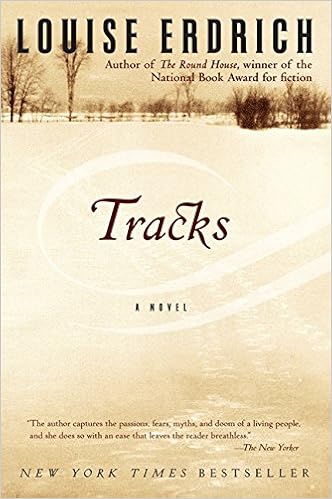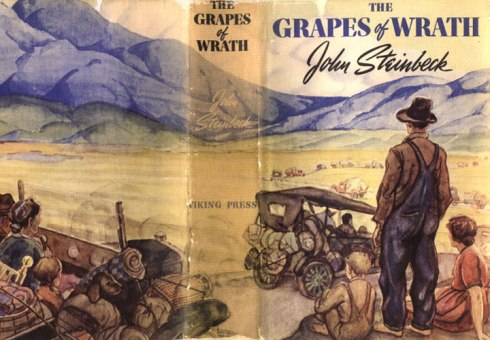I was quite blessed last year to have a read a number of wonderful books, both fiction and nonfiction, some of which were new to me, and some of which were old acquaintances. I’ve read Mansfield Park and Macbeth, for instance, several times already, but they unfold unwonted revelations upon each reading. The following is a list of books that I read for the first time in the last year; it is all fiction, mostly for the sake of categorical clarity (I don’t really think I can justify how I would rank The Principle of Hope, Vol 1, for instance, against Muriel Rukeyser’s Book of the Dead; it just don’t sit right). Let me quickly give mention, though, to two impossible-to-categorize memoirs: Maxine Hong Kingston’s The Woman Warrior and Theresa Hak Kyung Cha’s Dictee. They are required reading for reasons that, in all honesty, elude my critical capacities. They’re simply that good. In any event, the following are all books I read in 2015 that have, in some way, deeply enriched my comprehension of life, the world, and the soul.

The Divine Comedy by Dante Alighieri. Technically, I had already read The Inferno back in high school, but I figure a gap of nearly 20 years ought to qualify reading the Commedia in its entirety as “new.” I’m not sure whether it’s because of arrogance, ignorance, or some bizarre combination thereof, but I went into the Comedy with relatively low expectations. What I learned from Dante is a truth universally acknowledged but not often enough reiterated: the classics have new things to teach us. In particular, Dante pretty nearly revolutionized the way I think about divine love and its relation to sin. Truly, if you haven’t ever read The Divine Comedy, please do so. The edition I read was the translation by Robert and Jean Hollander. To be honest, I didn’t care so much for their translation. It seemed as though I got the content of the poem, and the translation was elegant, but the side-by-side comparison showed me that, even with my tourist’s-level Italian, their English version contained almost none of Dante’s poetry. That said, the endnotes and introductions were enormously helpful and endlessly fascinating. I’m going to make a point of re-reading the Comedy throughout my life, and I will likely try a different translation each time until I finally find the one that’s right for me. I hope you all find the one that’s right for you.

Infinite Jest by David Foster Wallace. Yes, much like Gravity’s Rainbow, it’s that book that everyone claims to have read (but really hasn’t), because she has borrowed it from the library 20 times with every intention of reading it, only to get a couple hundred pages in (if that) and stop, or she’s had it sitting on her shelf for twenty years, relying upon friends and visitors picking it up and rifling through the pages as a substitute for actually having to dust it off, or has sworn never to read it on general principle, because it’s: a) the book all those obnoxious hipsters/English majors claim to have read and loved, or b) a thousand effing pages long, and screw those endnotes (because, honestly who does that?). So. I read it. The whole thing. Not only worth finishing on its literary merits (which are considerable), but a prophetic diagnosis of a culture that has resorted to self-fulfillment as the ultimate authority, and a remarkable feat of authorial empathy.

Tracks by Louise Erdrich. Opening lines: “We started dying before the snow, and like the snow, we continued to fall. It was surprising there were so many of us left to die. For those who survived the spotted sickness from the south, our long fight west to Nadouissoux land where we signed the treaty, and then a wind from the east, bringing exile in a storm of government papers, what descended from the north in 1912 seemed impossible.” If reading those lines doesn’t make you want to read the book, I don’t know what would.

The Grapes of Wrath by John Steinbeck. Another feat of authorial empathy, this classic of twentieth century American letters is justly considered to be an epic. It’s Dickensian social realism in the best possible ways: a feel for the vernacular patois of the characters, a masterful control over the rhythm of the sentences, and a surefooted sedimentation of the chapters. This is an edifice erected as a monument to a hard time in our history, to all who survived it, and to all who didn’t.

Bring the Jubilee by Ward Moore. One of the great things about science fiction is that it can give thought experiments the moral weight of narrative. To a certain extent, all stories are fables. We are invited to exercise judgment on the actions and meaning of the characters we read about, and the exercise of judgment is a healthy thing to do if we want to keep our consciences in trim, fighting shape. In Bring the Jubilee, Moore mounts one of the great thought experiments on sf about the nature of free will and historical determinism. There are ambiguities, as there must be in most great stories. In the end, however, he implies, in grand existential fashion, that free will or not, we still bear moral responsibility for choosing whether or not to act.
The Crossing by Cormac McCarthy. Can you believe I never read anything by McCarthy until 2015? While I also read Blood Meridian and The Road for the first time, The Crossing is the one that blew me away. It’s really stunning, prophetic. The artistic invention of grace out of the whole cloth of human cruelty and cosmic indifference.

Invisible Man by Ralph Ellison. Another one that rather eludes my critical capacities, but it’s another prophetic work that manages to be utterly alienated and utterly tuned in to the need for authentic connection. Somehow caustic, bitter, and unsparing without giving up hope.

The Dispossessed by Ursula K. Le Guin. I know, another one I can’t believe it took me this long to get around to. I don’t have the excuse, as with Infinite Jest, of it being particularly long or aesthetically forbidding. Le Guin is a challenging and precise writer, but not in that way. I can see why this is considered to be her masterpiece, and while I did appreciate the structure, the overwhelming impression left one me was that it manages to dramatize the complicated nature of social injustice. Le Guin is about as merciless as possible with her socialist-anarchist Anarres, emphasizing that problems remain in even the best of possible worlds, yet she manages to inspire palpable relief when Shevek finally returns home—home to his planet, to his family, to the way of life he knows best. Whatever its flaws and shortcomings, the striving for a better world only has meaning when it is embedded in a particular context, and Le Guin imbues that context with the kind of utopian possibility that can only be illuminated by disappointment, but a disappointment put in its proper perspective—the kind bred by intimate familiarity.

Hyperion by Dan Simmons. Though it doesn’t really stand alone very well (and, as part of a pre-planned series, it’s not meant to), Hyperion rather lives up to its reputation as a masterpiece of sf worldbuilding. Its rep as “cerebral” sf may be a touch overblown, but only in comparison to, say, The Book of the New Sun. Simmons is a very smart writer, and he manages to weave together a story that is sort of about everything that sf is about: human nature, free will v. determinism, ontological reliability, etc. Each section of the book is a wonderful variation in tone and subgenre, ranging from characters study to action adventure to bildungsroman. No trope is left unturned, and Simmons always ties character development into the weirdnesses of his recognizably alien universe.

Lightning Rods by Helen DeWitt. This is a book about how neoliberalism screws us from behind. Metaphorically or literally? Sort of both. Satire’s brutal honesty depends on being a bit outré, and as brutal riffs on contemporary society go, this is damned prophetic.

The House of Mirth by Edith Wharton. Lily Bart’s decline and fall is full of pathos, but like any good social satire, it’s also shockingly lively and witty. Wharton’s genius is in finding a way to make her ruthlessness a form of empathy. As with Lightning Rods, she’s brutally honest, but her tonic doesn’t taste bitter, just a sad combination of bemused and furious.
Sort of Dishonorable Mention:

Atlas Shrugged by Ayn Rand. This is the worst novel I’ve ever read that I think ought to be required reading for all Americans. Unlike most folks who hate Atlas Shrugged, I found the prose to be bracing, and for all the tedious sermonizing, Rand knows how to craft rhetorically compelling speeches. This is polemical pulp fiction at its stylistic best. It is also an argument in favor of straight-up anarcho-capitalist plutocratic oligarchy. The heroes are people who actively sabotage civilization so that they don’t have to put up with any peons or government bureaucrats siphoning any of their precious bodily fluids wealth. On the one hand, you might be tempted to feel sympathy for these ingenious captains of industry who have to deal with the incompetent jerks bleeding them dry at every turn. On the other hand, they cause an extinction-level event in order to make more money for themselves. To the extent that anyone can be sympathetic to the plight of genocidal one-percenters, this book makes the best possible case on their behalf. For the rest of us who have something resembling a social conscience, it’s a window into the ideology driving both the Tea Party and Trumpism.☕
December 1st, 2016 at 9:59 pm
I had sex with the owner of this blog, and it was OK. Apparently, Christian cinema doesn’t teach one how bang with gusto.
December 29th, 2016 at 11:20 am
You should be so lucky. Apparently, being a jackass doesn’t teach one how to troll with imagination.
April 28th, 2017 at 4:25 pm
Great list! Any plans to return to your blog? My own return has been sporadic, admittedly, but I do miss your perspectives.
September 5th, 2017 at 6:42 pm
Hi David!
I do plan to return to this blog more regularly; I miss your perspectives, too. It’s dormant, but not dead. It only takes me five months to respond to posts!
October 20th, 2017 at 10:32 am
No worries – I’m not much better myself! Working at it, though. Best of wishes for your return!